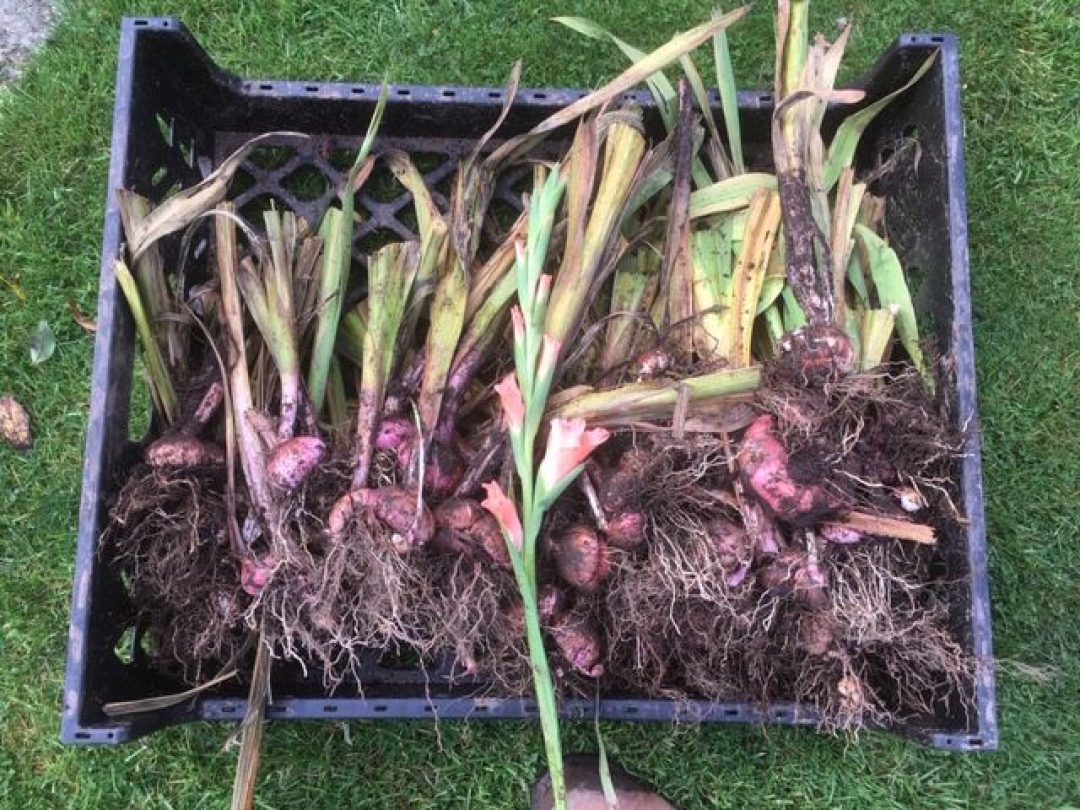Urgent Notice
Hestercombe will be closed all day on Tuesday, December 16th, while the National Grid completes local high-voltage work across the estate. Sorry for any inconvenience this may cause.
November signals a busy time for our gardeners who have to prepare the gardens for the chilly winter months ahead. Head Gardener Claire Greenslade explains what this involves.
Hestercombe will be closed all day on Tuesday, December 16th, while the National Grid completes local high-voltage work across the estate. Sorry for any inconvenience this may cause.
Update: in winter 2020, Claire decided to use the second lockdown and reduced staffing numbers to conduct small experiments in the formal garden. So instead of ‘putting the garden to bed’ during November she will instead be doing this in stages, which should be better for the soil over winter but will also better support wildlife – it could be a long winter so it’s better to see seed heads than empty beds. This approach will be a fairly new concept to some visitors, so make sure you read the signage and follow Claire on Instagram to find out more. The key is balance – to keep some foliage that looks good and chop back anything too messy.
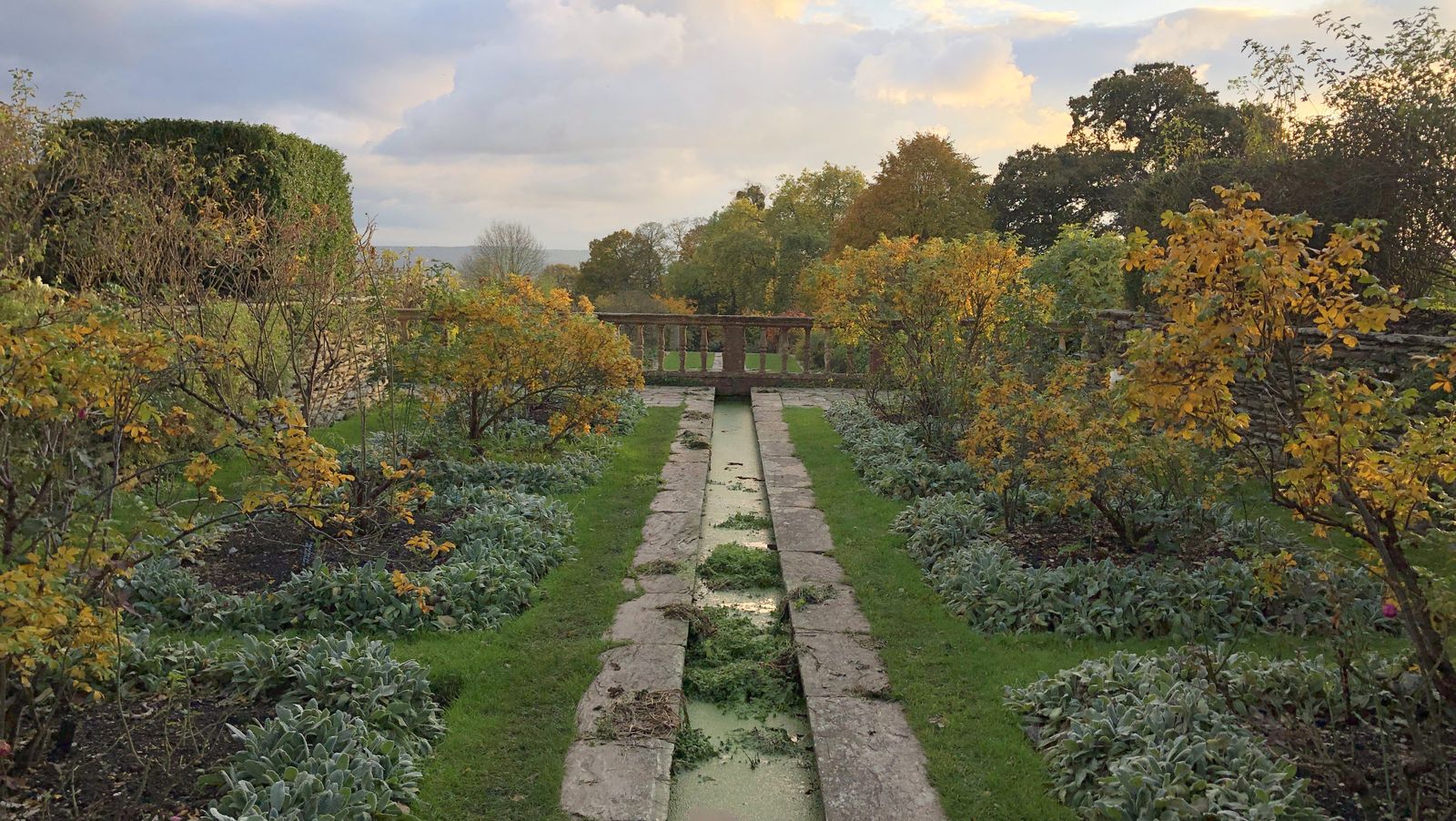
The sight of peach and scarlett gladioli standing tall on the Great Plat is synonymous with late summer at Hestercombe but it doesn’t happen by chance. The gladioli corms (bulbs) are prone to rotting in wet weather so every spring, new corms are planted to guarantee our summer display of gladioli. In autumn, the gardens team dig up that year’s gladioli corms and sell them in our Plant Centre. If you buy any, you can either plant them out now in a gritty compost or leave them to dry thoroughly and plant them in spring. Claire recommends placing them quite deep in the soil to avoid the need for staking.
Update for 2020: this year the team have left half of the Gladioli in the ground to see how well they do over winter – as a plus it is thought that the ones left in the ground will flower sooner than the newly planted ones and therefore extend the flowering season. With less disruption to the soil Claire will also try broadcast sowing the dianthus as seed in March. If this all works, time would be saved in planting out annuals and lifting plants in the future.
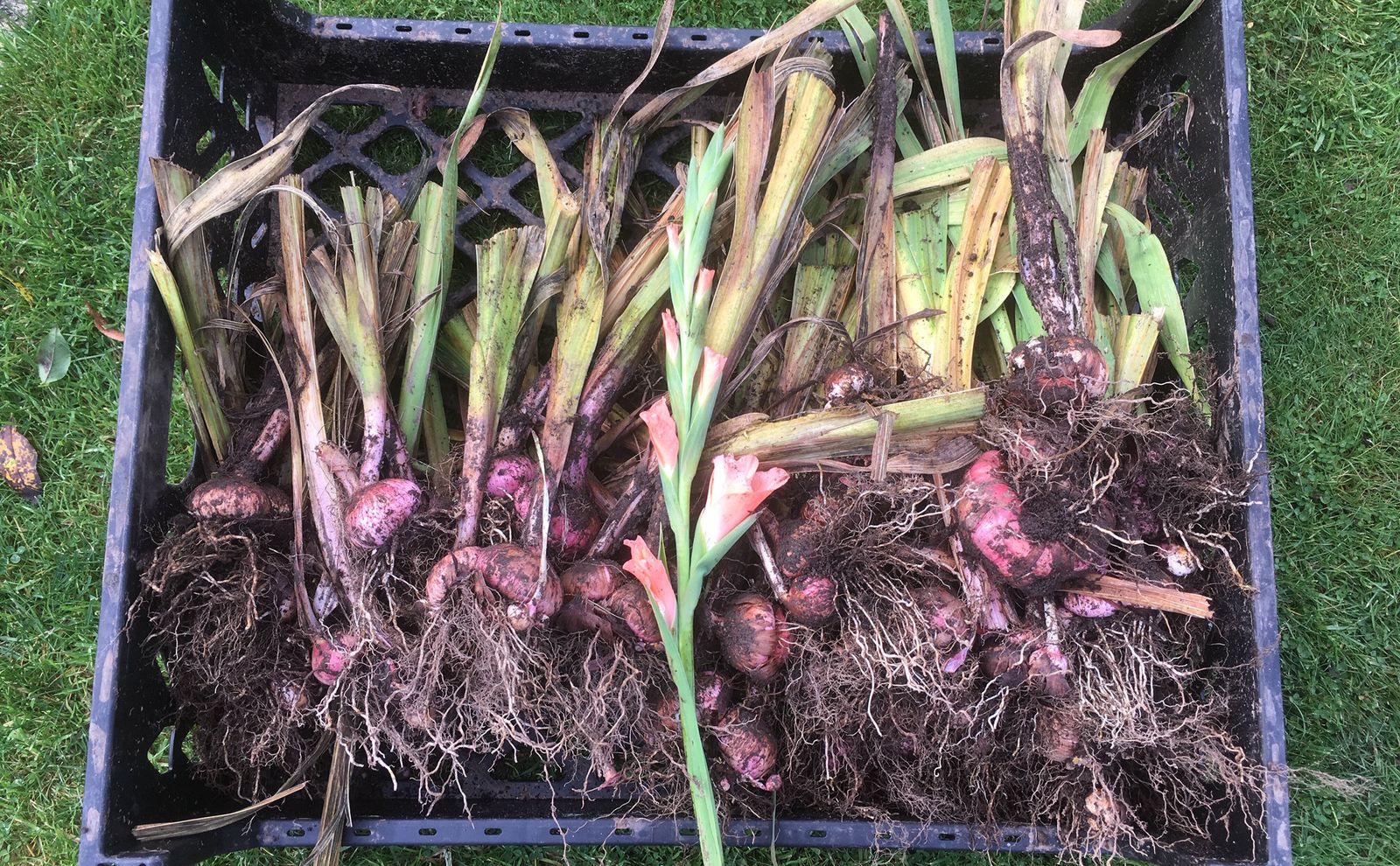
In the Dutch Garden, the pretty pelargoniums are taken out of the big urns, re-potted and placed in the greenhouse until the spring to keep them safe from frost.
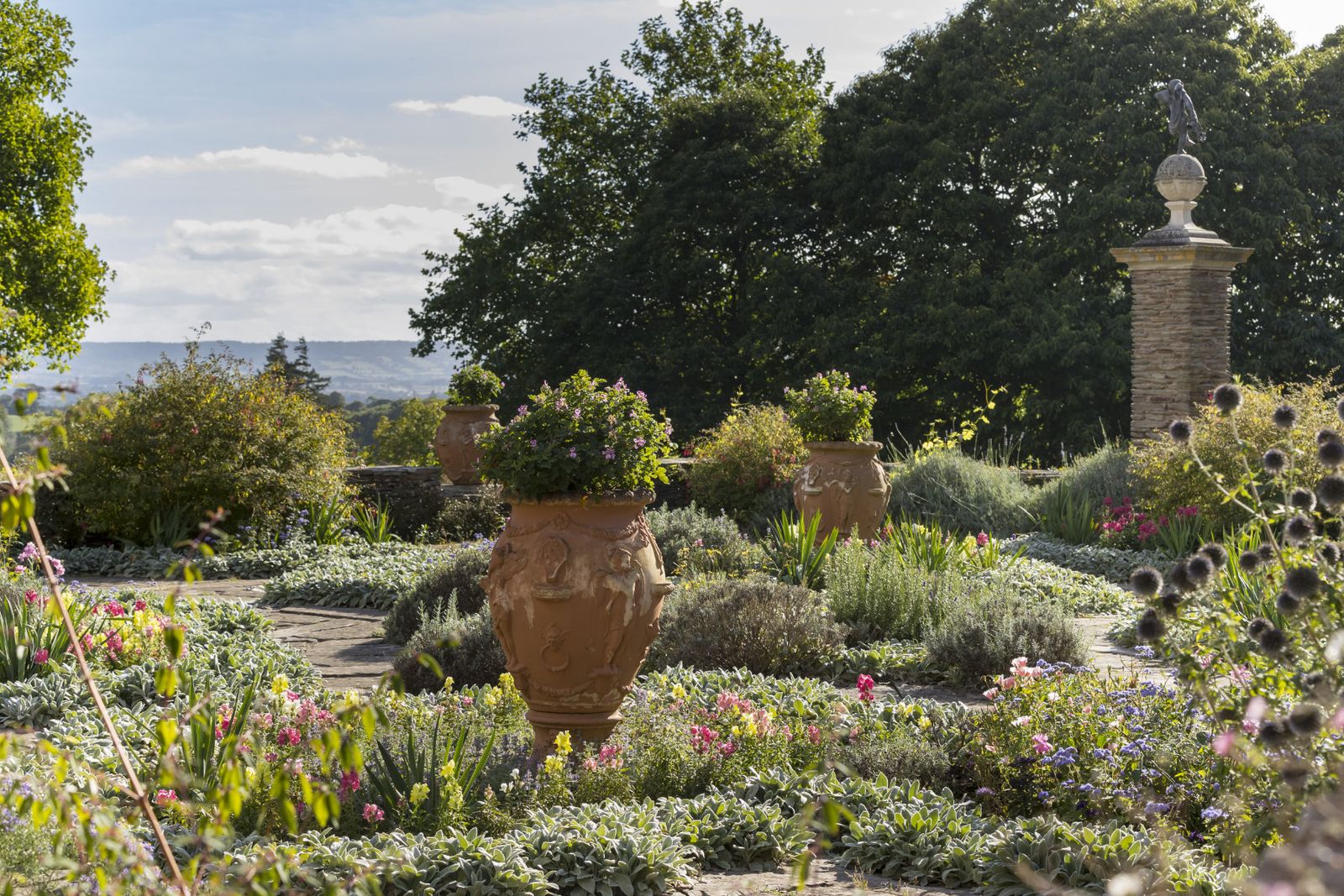
Sunset orange cannas are another staple bloom of the Great Plat during late summer so they need to be looked after well. After the cannas leaves have been blackened by frost (although the last few winters have been so mild, the leaves haven’t gone black), we cut them back, dig up the cannas and store them in the greenhouse during the winter months. We wait until it gets frosty as the cold temperature causes the plant to suck all its sugars back into the roots.
Update for 2020: ordinarily, both of our two types of cannas are lifted and stored over winter in the glasshouse. One variety of the Canna does very well and we have surplus stock from last year, so this year we’ll cut them back and cover them with straw and compost as winter protection. In recent years the climate has been milder and drier and Claire feels they will be fine in the ground (…cue the wettest coldest winter on record!)
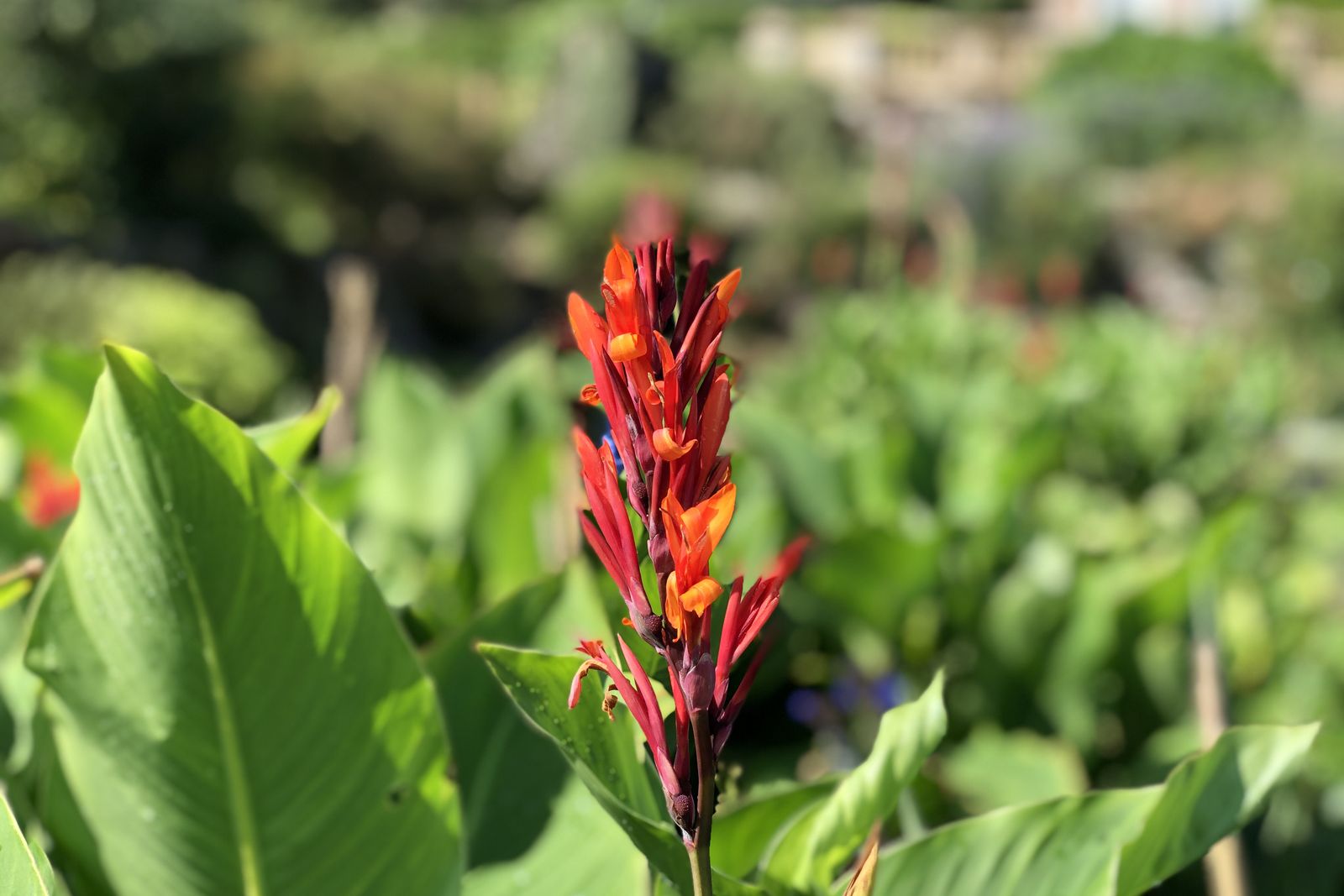
Come November, the blooms in the Edwardian Garden’s herbaceous borders, including asters, echinops and eryngium have gone over for another year. We cut them back but sometimes like to leave a few seed heads behind.
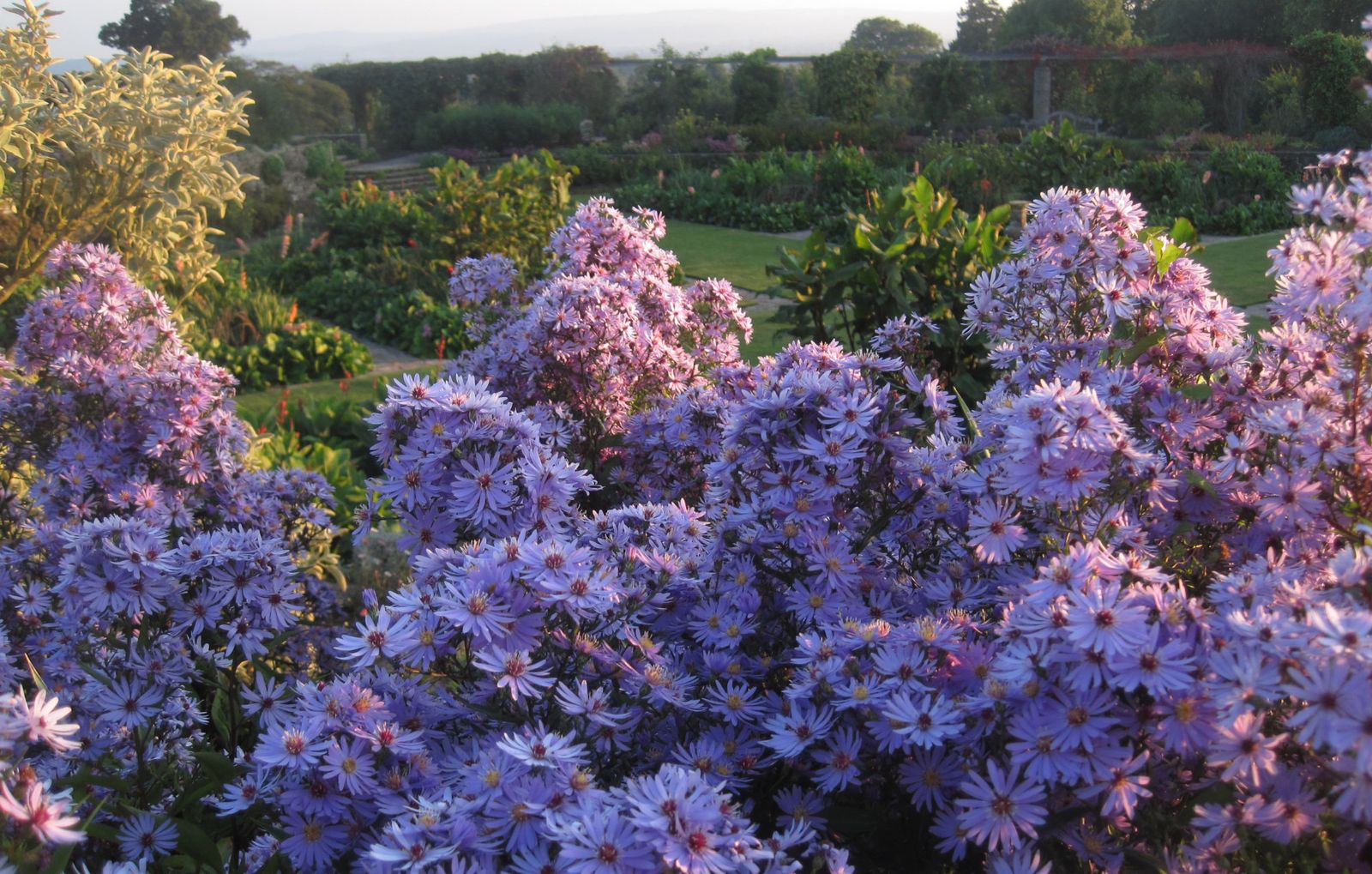
Hestercombe’s 50 acres of gardens are open daily from Wednesday to Sunday. See our full opening hours, admission prices and buy tickets.
Over the last 30 years Hestercombe’s historic landscape and its unique, world famous gardens have been lovingly restored.
However, Hestercombe’s closure due to the Covid-19 pandemic has had a devastating impact on Hestercombe Gardens Trust’s finances. We’re an independent charity without the safety net of larger organisations, and we must now raise substantial funds to ensure Hestercombe continues to thrive and to help secure its magnificent heritage for future generations.
We would be incredibly grateful for any donation that you are able to give. Thank you.
If you are a UK taxpayer and you select ‘Please Gift Aid this donation’, the UK Government will give Hestercombe Gardens Trust an additional contribution of 25% at no extra cost to you.
